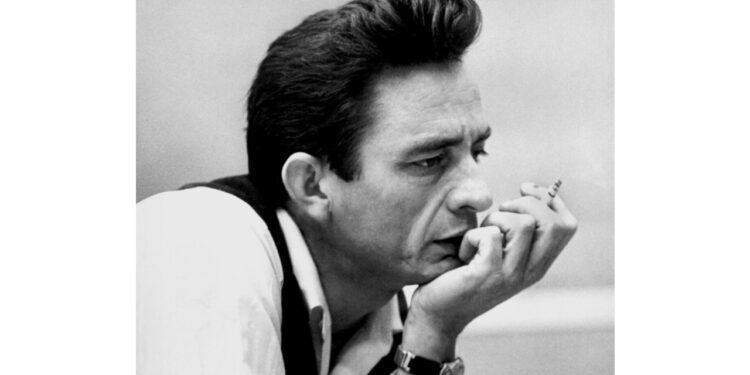Johnny Cash, known as the “Man in Black,” remains one of the most iconic and influential figures in American music history. His deep, resonant voice, raw honesty, and ability to transcend musical boundaries made him a cultural symbol whose legacy continues to inspire generations.
From humble beginnings
Born in 1932 in Kingsland, Arkansas, Johnny Cash grew up during the hardships of the Great Depression. His childhood on a cotton farm instilled in him both resilience and empathy for the working class, themes that would later define his music. After serving in the U.S. Air Force, Cash moved to Memphis, Tennessee, where he found his way into the emerging rockabilly scene alongside artists such as Elvis Presley, Jerry Lee Lewis, and Carl Perkins.
The rise of a country icon
Cash’s early recordings with Sun Records, including “Cry! Cry! Cry!” and “Folsom Prison Blues,” set him apart. His unique blend of country, gospel, and rockabilly struck a chord with audiences. By the late 1950s and 1960s, hits such as “I Walk the Line” and “Ring of Fire” cemented his reputation as a leading figure in American country music. Unlike many of his contemporaries, Cash embraced storytelling that reflected the struggles of everyday people, prisoners, and the downtrodden.
Struggles and redemption
Behind his success, Cash battled personal demons. Drug addiction and turbulent behaviour threatened his career and personal life. Yet, his resilience and determination to rebuild became part of his legend. His marriage to June Carter, herself a prominent country musician, provided stability and creative partnership. Together, they delivered performances that remain deeply cherished in American music history.
Folsom and San Quentin: giving voice to the forgotten
Cash’s 1968 performance at Folsom Prison and later at San Quentin highlighted his empathy for the marginalised. These live albums not only revitalised his career but also showcased his ability to connect with audiences beyond mainstream country fans. His willingness to shine a light on society’s outcasts gave him authenticity that resonated widely.
Later career and reinvention
In the 1990s, Cash experienced a remarkable career resurgence through his collaboration with producer Rick Rubin on the “American Recordings” series. Stripped-down, raw versions of both classic and contemporary songs—ranging from traditional folk to covers of Nine Inch Nails and U2—introduced him to a new generation. His haunting rendition of “Hurt” became a defining moment, underlining his vulnerability and depth.
Legacy of the man in black
Johnny Cash’s impact goes beyond music. His insistence on wearing black as a symbol of solidarity with the poor and oppressed embodied his sense of social justice. He remains a figure who bridged musical genres and social divides, admired for his honesty and authenticity. Even decades after his death in 2003, Cash’s voice and message continue to resonate, securing his place as one of the most important cultural icons of the 20th century.
REFH – Newshub, 12 September 2025




Recent Comments